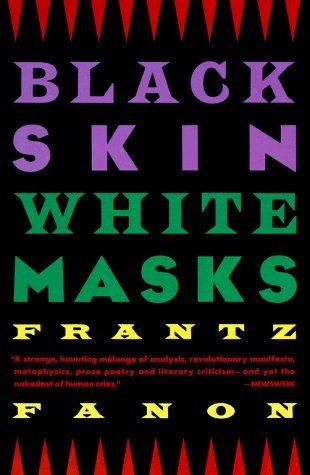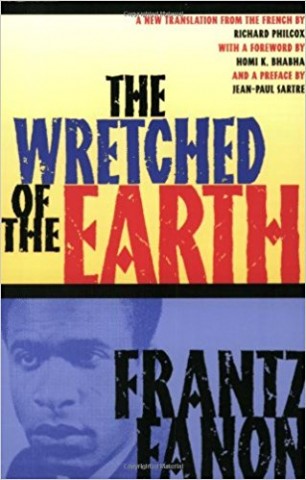If you are looking for a tour de force of colonialism, anti-colonization struggle and decolonization, Frantz Fanon's The Wretched of the Earth (1961) should be high on the list. Fanon is a unique voice; in style, content and argument. This work has influenced revolutionaries from Palestine to Sri Lanka and South Africa, as well as the United States. In his day – and undoubted in our times – Fanon was a radical. Fanon is probably most well known for his promotion of the use of violence, which comes out clearly in the first chapter of this book. He begins: "decolonization is always a violent event" (p. 1).
Will people will power – who use that power to entrench severe inequalities and enrich themselves – easily give up that power? Would they do so voluntarily? Fanon suggests not. "In its bare reality, decolonization reeks of red-hot cannonballs and bloody knives. For the last can be the first only after a murderous and decisive confrontation between the two protagonists. This determination to have the last move up to the front, to have them clamber up (too quickly, say some) the famous echelons of an organized society, can only succeed by resorting to every means, including, of course, violence" (p. 3).
Violence is not a means that is sought for its own sake, according to the author. For Fanon, violence is an expression of equality: "If, in fact, my life is worth as much as the colonist's, his look can no longer strike fear into me or nail me to the spot and his voice can no longer petrify me. I am no longer uneasy in his presence. In reality, to hell with him. Not only does his presence no longer bother me, but I am preparing to waylay him in such a way that soon he will have no other solution but to flee" (p. 10). The colonized person "is dominated but not domesticated. He is made to feel inferior, but by no means convinced of his inferiority" (p. 16). "Over the years I have had the opportunity to verify the fundamental fact that honor, dignity and integrity are only truly evident in the context of national and international unity. As soon as you and your fellow men are cut down like dogs there is no other solution but to use every means available to reestablish your weight as a human being. You must therefore weigh as heavily as possible on your torturer's body so that his wits, which have wandered off somewhere, can at least be restored to their human dimension" (p. 221).
There have been tens of books, and hundreds of academic articles, published on the importance of strict non-violence in mass action, citizen movements. For the last decade, efforts have been made to show that violence does not work, and that only strict non-violence should be used. Fanon might suggest that this trend is not, in fact, novel: "At the critical, deciding moment the colonialist bourgeoisie, which had remained silent up till then, enters the fray. They introduce a new notion, in actual fact a creation of the colonial situation: nonviolence. In its raw state this nonviolence conveys to the colonized intellectual and business elite that their interests are identical to those of the colonialist bourgeoisie and it is therefore indispensable, a matter of urgency, to reach an agreement for the common good" (p. 23). However, the author argues that "the underprivileged and starving peasant is the exploited who very soon discovers that only violence pays. For him there is no compromise, no possibility of concession" (p. 23). Furthermore, the control and exploitation need not be direct to be subject to violence, economic domination does also (p. 27). Fanon foresaw the real issue of the day being inequality: "What matters today, the issue which blocks the horizon, is the need for a distribution of wealth. Humanity will have to address this question, no matter how devastating the consequences may be" (p. 55).
For all his original contributions, however, I found some aspects of Fanon's writing challenging – even self-contradicting. In many ways Fanon speaks for the people – for example: "what the colonized people want…" (p. 13); "the youth of Africa should not be…" (p. 137). This is a disempowering narrative for the people. Rather than advocate for the people to have their voices heard, and for their ability to create their own forms of governance, Fanon speaks on their behalf. Undoubtedly, Fanon argues in favor of governance by the people (e.g. p. 130), but his writing does not always reflect this (e.g. "the government must serve as filter and stabilizer" (p. 137)).



